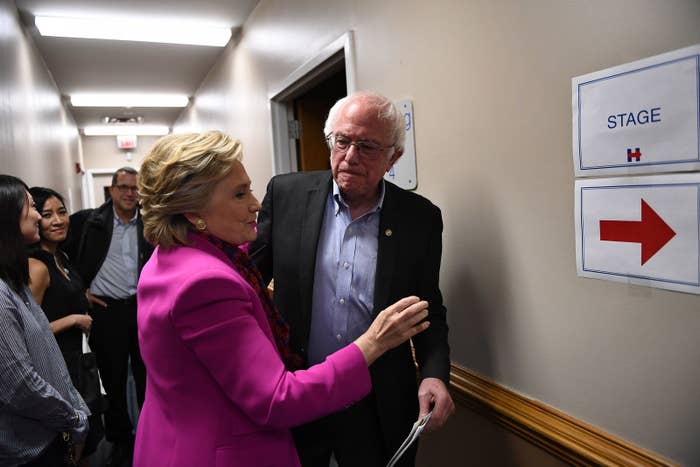
The advocacy group that successfully lobbied the campaigns of both Hillary Clinton and Bernie Sanders to self-report their diversity data has a new report out on diversity inside Democratic state campaigns.
Inclusv, the group founded in 2015 to promote racial diversity and inclusion in national politics, says that 32% of all staffers employed by 40 state parties (and the DC Democratic Party) are people of color.
According to Inclusv's data, white staffers make up nearly three-quarters of all staff in state parties. Latinos made up just 8% of staff inside state parties, while black Americans made up 14.5%. Almost 40% of the staffers of color came from either Florida, California, Ohio, North Carolina, or Virginia.
The group views state parties as a key area for talent development at the national level, from campaigns to candidates themselves, and holds that state parties with more diverse staffs are more attentive to the needs of constituency groups. It comes off the heels of the Democratic National Committee establishing a $10 million fund that would allow state parties to compete for grants to bolster their efforts, and an added commitment that all state parties would receive $10,000 monthly from the DNC through 2018.
Sabrina Singh, deputy communications director for the DNC, said that “Democrats are committed to hiring diverse and talented staff that reflects the diversity of the Democratic party. As we continue to rebuild the party, we know this is a top priority and we are happy to work with Inclusv to further diversify our state parties.”
Alida Garcia, executive director of Inclusv, told BuzzFeed News that although the group is enthused by the state parties' willingness to participate, it's more interested in the implementation of its recommendation. Their roadmap will help build state parties that are "more structurally accountable to communities of color," said Garcia.
"Demography is not destiny for the Democratic Party, and our communities deserve intentional decisions from the state parties to include us at all tables deciding our futures," she said.
State parties that did not participate in the study include Nevada, Mississippi, Kentucky, and New Jersey.
“It’s an urgent matter that the party improves upon these numbers and increase the depth of its reach into communities of color," Garcia said. "Our communities sometimes feel as though Democrats treat us like an ATM, stopping by every two to four years to withdraw our votes, time and money. If Democrats want to get the turnout they need from non-white voters in an increasingly diverse country, they must seriously devote themselves to building a corps of leaders that better reflect the breadth of a big tent party.”
